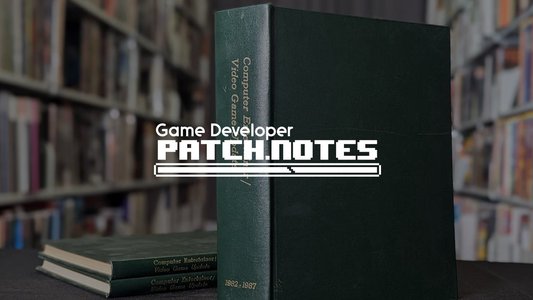Marketing? "You need to be merciless." Passion? "I'd rather have a team player." Inspiration? "It's not all about creating the game you want." Three surprising quotes from three prominent developers with studio backgrounds who went the indie route -- Jake Kazdal of Haunted Temple, Daniel Cook of Spry Fox, and Ichiro Lambe of Dejobaan Games, respectively. Haunted Temple Kazdal, whose background includes stints at Sega Japan (where he worked on Rez) and EA LA (the cancelled Spielberg project LMNO) has formed his own three-person indie Haunted Temple with two other ex-EA cohorts and is currently working on Skulls of the Shogun, a downloadable strategy title. "While we were at EA we had really specific roles, and now between the three of us" all three handle a number of functions. "It's insane and it's fully the craziest thing I've done in my life," says Kazdal. He sees the obvious differences between life as an indie and life at a studio -- noting that he likes the freedom to work at his own pace, and also the creative freedom of the indie life. The team has "total creative freedom," he says. "We're constantly trying new stuff, and there's no chain of command, we come up with a cool idea and we just do it." However, his previous jobs taught him important skills that he still uses. For example, for Space Channel 5, the team at Sega had created such a detailed style guide that even though he joined the project a year in, and didn't speak Japanese at the outset, he was able to start contributing quickly. For artists, style guides are essential to keep the "vision concrete, and bring new team members up to speed, and keep everybody on the same page." And he learned the value of a "core small team making creative decisions" on that game, and on Rez. Working with a small pool of top-level creatives "kept me at my absolute best, to keep up with the team" says Kazdal. "We didn't know what we set out to make and it was really challenging, a really tiny group being able to go deep and go out of bounds." However, the team went too far, he says. "It was just us playing it every day and it was getting weirder and weirder and weirder. There was no context." When there was finally a playtest, Kazdal learned another lesson: the game has to be understood by outside audiences. "It forced us to take a step back and do a huge pass on visual communication." Says Kazdal, "We've had to kill a lot of cool features in Skulls of the Shogun for the same reason." Defining a game's art style from the outset makes the work much easier, Kazdal is convinced. "I have experienced every role from the bottom to the top of the art pipeline in games but I've never had to do them all at once," he says. "By doing a lot of the heavy lifting and definition at the early stage I was able to work quickly and efficiently, because I was able to go back and check my stuff against these style guides." But the most important thing? An EA lesson -- a vertical slice. The vertical slice the team created for Skulls changed his concept of the game's optimal map size -- but once the change was made, the game was more fun. This also had knock-down effects, leading to major decisions for props and other gameplay elements. Moreover, "Spending all of our efforts on the small chunk, we had a complete blueprint of how the game would work... You could show it to publishers and press, and they would get it immediately." And finally, "Things get exponentially faster from that point because you have a rock-solid foundation." He also noted that "far too many developers put all of their effort into making their game... You need to be merciless" about going out there and speaking to the press. "Constantly focusing on raising awareness of your game," is key, Kazdal said, mentioning that events like PAX and E3 (where the team toted around a laptop and stopped showgoers) have been crucial. Spry Fox Daniel Cook, co-founder of Spry Fox, has a different message, one gained over 16 years in the industry -- he started at Epic Games (when it was still called Epic Megagames and focused on shareware) and moved to Microsoft before booting up his own company. Spry Fox is "project-based, we assemble teams, and if they don't work out they all disperse -- and if it does work out we all share revenue," he said. Looking at the audience, Cook surmised that everyone out there was capable of making a game. The important question is "How do you make them profitable, successful, and distribute them? These are the things that are really interesting." With Spry Fox, he hopes to "look at all of those lessons from the shareware game days that are still valid today, and then a whole bunch of new lessons" learned from the contemporary AAA space. To keep the company running, he says, "portfolios are critical" -- Spry Fox has developed five games in its first year. The two most successful are Flash game Steambirds and Kindle puzzler Triple Town. However, "neither one of those games have generated enough revenue to keep Spry Fox going itself." Keep making games, and you'll eventually hit one that's "great, right platform, right time, with the right theme. And it's very hard if not impossible for a small independent game developer to control all of those factors all the time. Develop games simultaneously if you can, release games early and often if you can't." At Microsoft, Cook experienced six levels of hierarchy over design. "Any one of those people could look at your design and say 'You know what? I don't think my daughter would like that! She's into ponies now!'" The games that resulted had poor design and took too long to find the fun. Cook began to be convinced he's not a good designer, in fact. "Once I got out of that particular environment, I'm like, 'Holy crap!' When you have a single creative director on a design you can design so much better." Keeping in mind "all of those instinctual factors you've learned over the years," working at a studio, "you can actually go with your gut. If you've been training yourself, you can make damn good decisions. The games we're making now, where there's a clear design lead on the project converge on the fun so much faster." Teams should aspire to iterate daily, Cook says. "We're inventing entirely new ways of playing and critical to that is get a playable prototype, get design feedback on that, and then implement that design feedback. That's your design cycle." But be careful. "If that starts getting to a week, you're in a bad place. If you're getting to two weeks your design may never converge. You may never find the fun." And recruiting collaborators is not completely intuitive, he warns. Interviews? Forget them. "When we start up a team, we say, 'This is going to be a short term project. Let's see if you can finish it.' That's the interview, and that pulls the gems from the mud like nothing else. If they can't finish, find someone else to work with." His major criteria include reliability -- which he notes is impossible to discern in an interview; ability to see the big picture -- "We're all making this awesome game together, it's a shared goal"; and the ability to work well with others -- "Genius programmers who can't work well with people can't make great games. It doesn't work"; and people who respect the role of game designer -- "It's a completely and utterly different skill than art or programming. It's what you're making." It's critical the team understands that. On the other hand, there are things to watch out for. "Crunch is stupid. If you're crunching for more than a week or two weeks, you're doing it wrong. It results in worse quality games." "Passionate is okay, but sometimes it means obstinate. I'd rather have a team player who sees the vision," says Cook. And "located in North America doesn't mean crap." Global contributors "bring unique perspectives and they're just as talented." In conclusion, "You can do the impossible if you have an awesome team." Dejobaan Ichiro Lambe, of Dejobaan Games -- of Steam hit AaaaaAAaaaAAAaaAAAAaAAAAA!!! - A Reckless Disregard For Gravity shared his insights next. The first: think holistically. Says Lambe, "I like to think strategically rather than tactically... [about] how things are interconnected, rather than discrete." "Conventional wisdom is that indies need to wear many hats," says Lambe, but "the mistake is that we sometimes make is that we consider them to be separate problems. But I consider it better to bring them together." For example, Dejobaan combines marketing with bug support. "We might reply in 50 point Comic Sans or iambic pentameter... It takes no time to reply with something interesting versus something dry, but people who get a response like that will notice there is a human in the other end and they will talk to their friends about that. It's fun to do and it makes people talk." In responding to community comments on Rock Paper Shotgun, Lambe created a YouTube video instead of just posting to the thread. "That's no more difficult than sitting down and typing the answers to these comments, but when we posted the video the commentors went wild." In short, "If you are an indie who is working on all of these things, you have the opportunity to connect them" -- like marketing and design, one Lambe feels strongly about. Marketing is not about getting people to buy crap they don't want to buy, says Lambe. "I view it as the process of creating a game so amazing that they are open up their wallets and give you their hard-earned money to play your game. You're going to create the game such that people will comment on it. If your game is worth talking about more people are going to hear about it." Marketing is "not an afterthought. It's also not inherently evil." In his view, "there's a fallacy of the indie game developer: you're doing it because you want to create the game you've always wanted to create. It's not all about creating the game you want. There are millions of games you might want to create." What Lambe wishes to create are games that he wants to create but are also games that people want to play and want to pay for. "The happy spot is somewhere in between; that is going to pay your mortgage. So in the broad sense, at the outset, before we even think about whether the game should be on Windows, or be an action game or whatever, we want a game to be excited about -- and [a concept that we can] state on paper such that we can tell people about and they say 'that makes sense'." In short, developing games people care about is a question of character. "Some people are innately good at this," says Lambe. "Sometimes I tend to forget about it. I'm sitting here working on [the game] and I just want to get the game done and it's very easy to forget about these fun things." Character is, he feels, "the intersection between game development and marketing." And if it's an explicit goal of the project, "it gets done." In fact, planning is key, but it can be tough. "I'm horrible at project management," says Lambe. "We have individuals in our team who are competent -- but you need to tie this all together. You need to make sure how they get from point A to point B."
GDC 2011: Indie Revelations From Experienced Developers
Feb. 28, 2011

Tags:
event-gdc
Subscribe to our newsletter
About JikGuard.com
JikGuard.com, a high-tech security service provider focusing on game protection and anti-cheat, is committed to helping game companies solve the problem of cheats and hacks, and providing deeply integrated encryption protection solutions for games.
Top

This Motorola foldable is on sale for $100 off - here's why I recommend it over most slab phones
Aug. 9, 2025

The best Linux distros for beginners in 2025 make switching from MacOS or Windows so easy
Aug. 9, 2025

I answered the million-dollar question about buying laptops - here's the ultimate guide
Aug. 9, 2025

3 portable power stations I travel everywhere with (and how they differ)
Aug. 9, 2025

I tried Lenovo's new rollable ThinkBook and can't go back to regular-sized screens
Aug. 9, 2025
Recent

This Motorola foldable is on sale for $100 off - here's why I recommend it over most slab phones
Aug. 9, 2025

The best Linux distros for beginners in 2025 make switching from MacOS or Windows so easy
Aug. 9, 2025

I answered the million-dollar question about buying laptops - here's the ultimate guide
Aug. 9, 2025

3 portable power stations I travel everywhere with (and how they differ)
Aug. 9, 2025

I tried Lenovo's new rollable ThinkBook and can't go back to regular-sized screens
Aug. 9, 2025

5 iOS 26 features that made updating my iPhone worthwhile (and how to try them)
Aug. 9, 2025

Healthcare cybersecurity failures put patient safety at risk, Modat warns
Aug. 9, 2025

France telecom exposes millions of customer records
Aug. 9, 2025

GPT-5 launch sparks backlash as OpenAI removes ChatGPT model choice
Aug. 9, 2025

Patch Notes #17: Raven workers secure union contract, VGHF acquires Computer Entertainer, and Ziff Davis makes layoffs after bumper quarter
Aug. 8, 2025
Blog

Unreal Engine Game Protection Solution
Aug. 8, 2025

How games detect speed-hack cheats
Aug. 6, 2025

JikGuard game protection supports Google Play's 16 KB page-size compatibility requirement
Aug. 1, 2025

JikGuard game protection supports Steam Deck
July 30, 2025

Security Risk Analysis for Racing Games
July 28, 2025

Are there hacks that increase gacha pull rates?
July 24, 2025

VMOS Open-Source: New Threat to Game Security
July 18, 2025

How Games Detect Black and Gray Studio
July 15, 2025

How Games Detect iOS Jailbreaks
July 11, 2025

FPS Game Anti-Cheat Solution
July 9, 2025
Random

How Google's Genie 3 could change AI video - and let you build your own interactive worlds
Aug. 8, 2025

My 4 favorite image editing apps on Linux - and two are free Photoshop alternatives
Aug. 8, 2025

I answered the million-dollar question about buying laptops - here's the ultimate guide
Aug. 9, 2025

I tried Lenovo's new rollable ThinkBook and can't go back to regular-sized screens
Aug. 9, 2025

Game technology outlet Digital Foundry breaks off from IGN
Aug. 8, 2025

Laser Digital first to offer regulated crypto options in Dubai
Aug. 8, 2025

Thailand ends 9-month outflow streak as Asia stocks rally
Aug. 8, 2025

5 iOS 26 features that made updating my iPhone worthwhile (and how to try them)
Aug. 9, 2025

Canonical's OpenJDK builds promise Java devs more speed - and a whopping 12 years of security support
Aug. 8, 2025

Take-Two boss says GTA VI will be priced to deliver 'more value than what we charge'
Aug. 8, 2025
Most Views

How Games Detect GameGuardian
March 17, 2025

Explanation of Game Anti-Cheat Solutions
March 17, 2025

Cheat Engine Modifier Detection Solutions
March 18, 2025

Explanation of Unity Engine Encryption Solutions
March 17, 2025

How to Anti Hack in Client-Side Games
May 21, 2025

Cocos Engine Encryption Solution
April 8, 2025

How Games Anti-Debugging
April 15, 2025

Cloud Phone Detection Solution for Gaming
May 21, 2025

How Games Detect Frida
March 25, 2025

How Games Detect PlayCover
March 26, 2025


